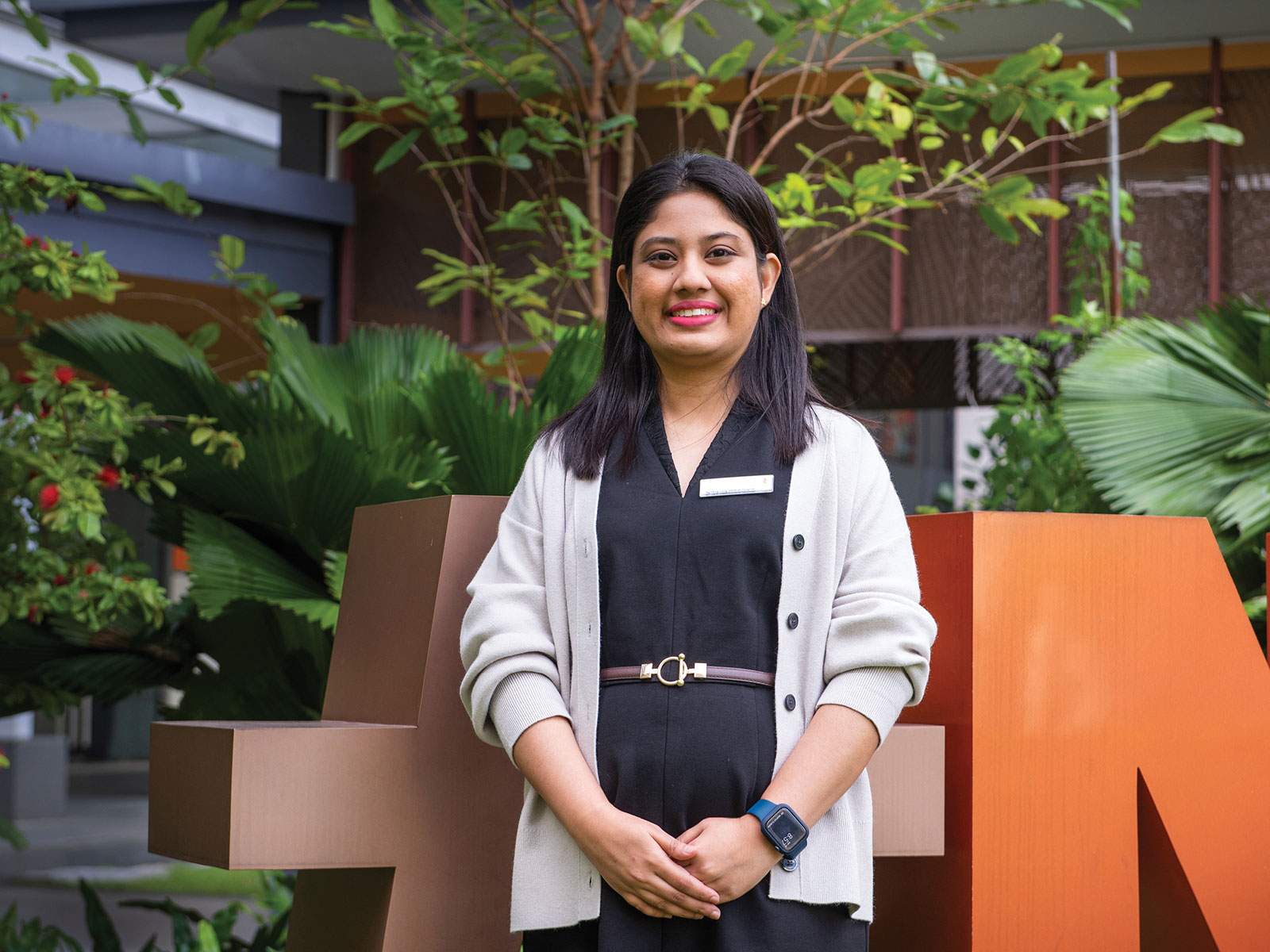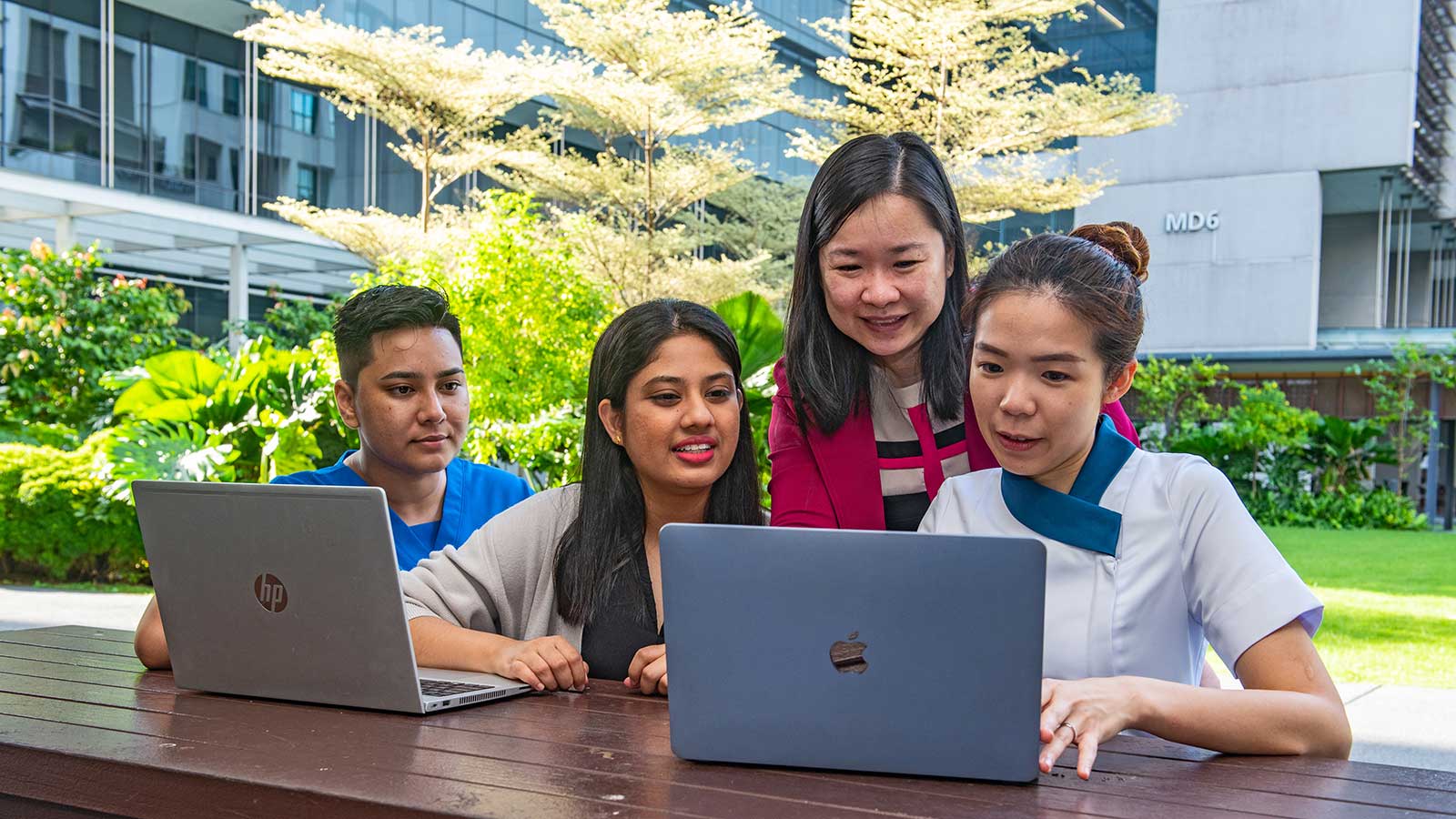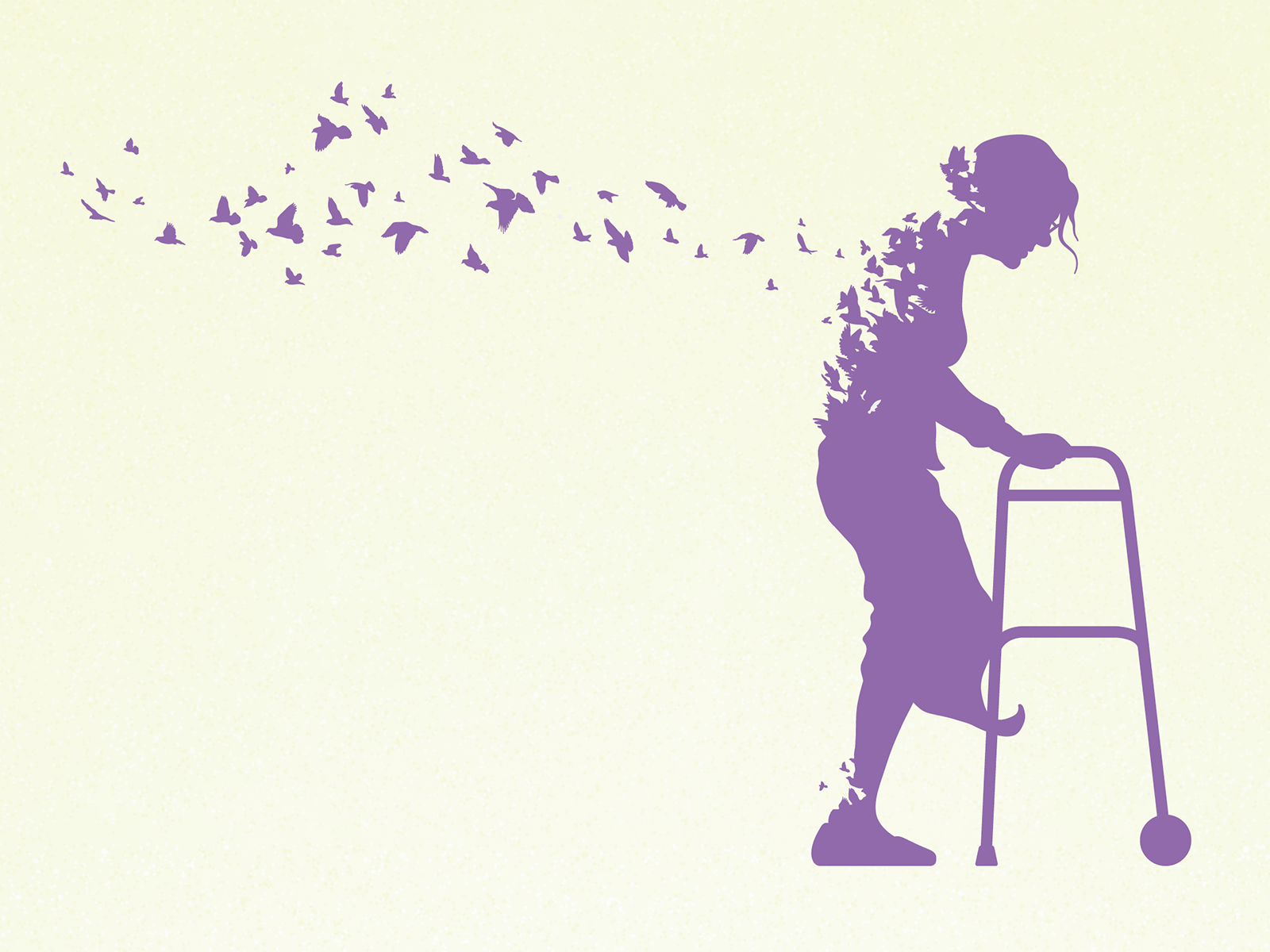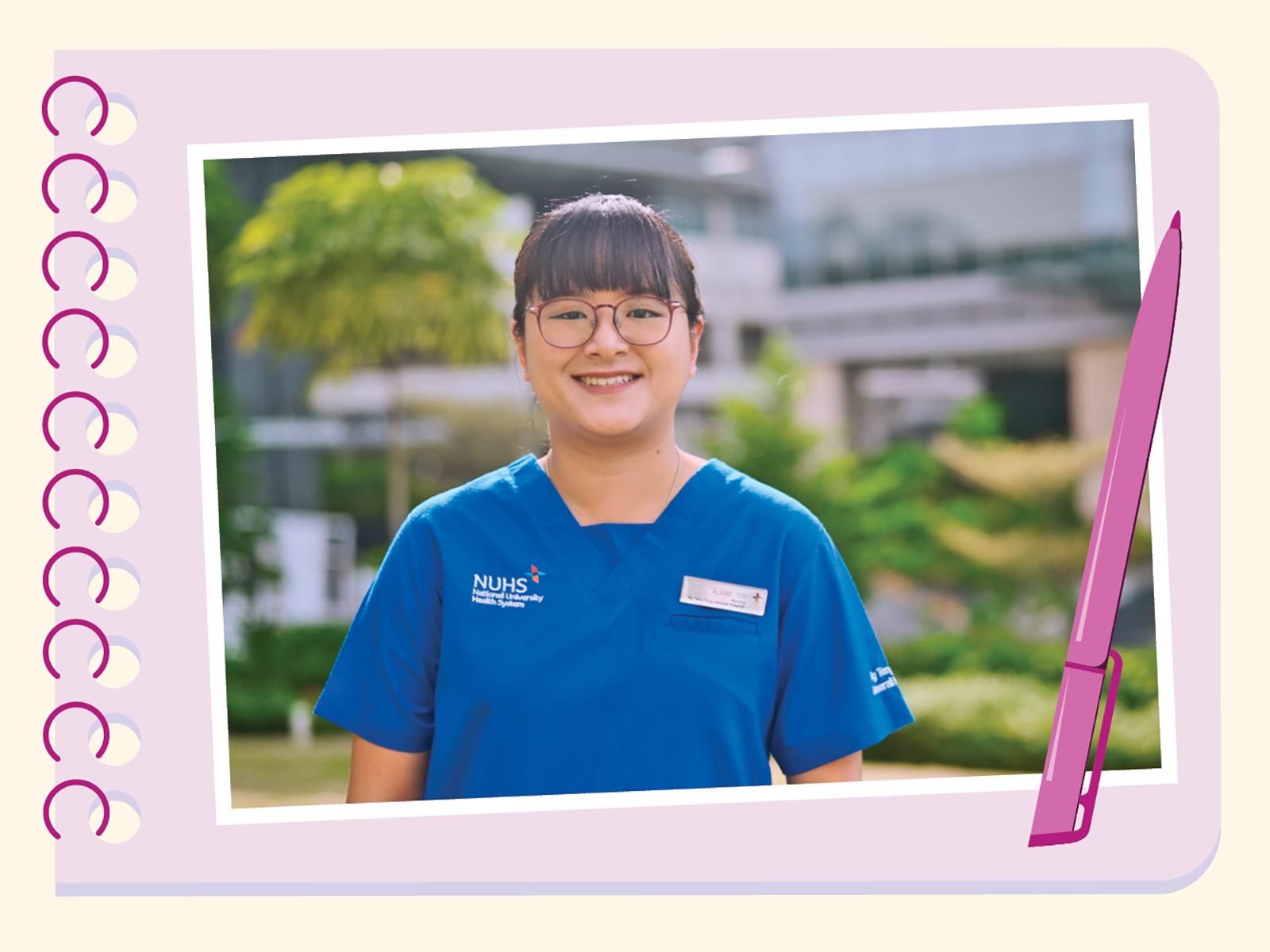
Issue 44
Nov 2022
NURSING

The pandemic has undoubtedly been a tough time for everyone, but for final-year NUS Nursing undergraduate T Kavitha Rose, it was made all the more challenging after her mother suffered a stroke when she was in the first year of her course.
A cruel stroke
The 31-year-old had to quit her job to become a full-time caregiver, while coping with the rigours of her Bachelor of Science (Nursing Practice) part-time degree programme.
Kavitha’s mother suffered a subarachnoid haemorrhage—bleeding in the space that surrounds the brain—and had to undergo an emergency operation.
Kavitha was at home when it happened. Her mother had gone out for lunch with some friends that afternoon.
“My cousin called and told me that my mum had fainted. She was experiencing weakness on her left side of the body and was on the way to the hospital via ambulance,” she recalled.
Kavitha was soon informed by paramedics that her mother was being taken to Tan Tock Seng Hospital. Her husband drove her down and upon reaching the Accident and Emergency ward, she learnt more about the extent of her mother’s condition—a CT scan had revealed a blood clot in the brain.
“I felt numb and speechless upon hearing this, as I couldn’t believe that this was happening,” Kavitha said.
Road to recovery
What followed in the aftermath of the episode was a long journey to recovery for her mother, during which Kavitha faced a great deal of difficulty adjusting to a new and unexpected lifestyle.
After the operation, her mother remained sedated for almost a week in the Intensive Care Unit. Upon regaining consciousness, she was still very weak and had to be fed through a tube. She could not speak and her mobility was hindered, Kavitha shared. She remained in a High Dependency ward for another week, before being transferred to a normal ward.
“As for the pursuit of my part-time degree, I also had a hard time catching up on lectures, and I almost wanted to give up. Without their help, guidance, understanding and support, I would not have been able to make it through. I was very touched and grateful for their generous help during that difficult time of my life.”
She was subsequently moved to Thye Hua Kwan Hospital in Ang Mo Kio for a month to undergo rehabilitation, learning relevant physical exercises from a physiotherapist and occupational therapist to regain her strength.
Kavitha too had to undergo caregiver training, as she was responsible for taking care of her mother daily. She is an only child and her mother lives with her and her husband, after her father succumbed to a heart attack when she was 16. As Singapore was in the grip of the COVID-19 pandemic, it was difficult to employ a domestic helper to care for her mother.
The unexpected situation forced Kavitha to change her daily routine significantly, going to her mother’s side after her office hours to keep her company.
“During this time, I had two to three evening lectures online weekly, so I would usually attend them while in the hospital at my mum’s bedside. This routine went on for about two months,” said Kavitha.
Upon her mother’s discharge from Thye Hua Kwan Hospital, Kavitha resigned from her job to look after her full-time.
“I realise that I like to care for and communicate with patients, so I would like to be a care manager one day to help patients coordinate their medical treatment, including administering assessments, developing care plans, and monitoring their medication compliance.”
Almost two years on, her mother’s health is now stable, although she still has slight paralysis on the left side of the body and requires some assistance for her basic self-care tasks, such as bathing and having her meals.
A degree of determination
“As for the pursuit of my part-time degree, I also had a hard time catching up on lectures, and I almost wanted to give up,” she shared, adding that she only managed to pull through that challenging first year with the help of her classmates and lecturers.
“Without their help, guidance, understanding and support, I would not have been able to make it through. I was very touched and grateful for their generous help during that difficult time of my life.”
Kavitha has since found a new full-time job as a research coordinator, where she plans research studies and manages and analyses data findings. She spends three to four days per week attending classes virtually and is in the third and final year of her part-time degree programme.
On days with classes, she runs on a very tight schedule. Her office hours are from 8am to 5.30pm, while her online lessons begin at 6pm. This means she only has a 30-minute window to get home.

Kavitha with her classmates and lecturer.
“Most of the time I am still on my way home from work, and I listen to the lectures on my headphones. It gets difficult to concentrate due to the distractions while taking the MRT and crossing the road to get back home,” she shared.
She has also missed some classes due to urgent work commitments on some days. And no thanks to the pandemic, it is also tougher to complete group assignments, as students cannot meet physically all the time and most of their meetings have to be done virtually.
Kavitha previously worked as a registered nurse in KK Women’s and Children’s Hospital, and intends to return to the field again after graduating in July next year.
“I realise that I like to care for and communicate with patients, so I would like to be a care manager one day to help patients coordinate their medical treatment, including administering assessments, developing care plans, and monitoring their medication compliance,” she said.
“I also want to build good relationships and rapport with my patients, and serve as an advocate and champion of their health.”
Click here to read VITALS (August) issue.
This article was first published in the August issue of VITALS, an NUS Nursing publication.
More from this issue



